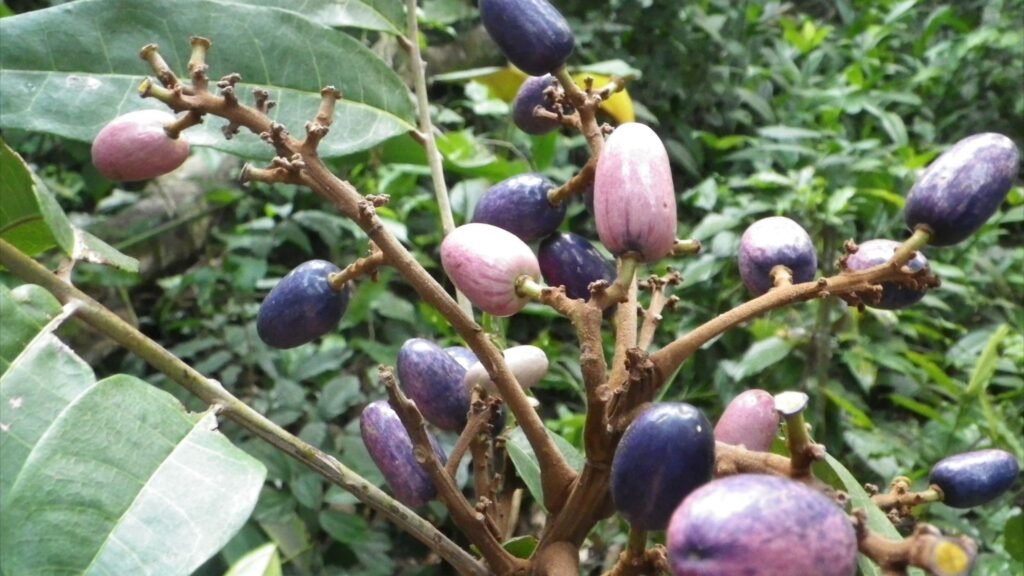African pear, or “Ube,” botanically called Dacryodes edulis and belongs to the Burseraceae family, is a versatile fruit with numerous health benefits. Packed with essential nutrients, antioxidants, and bioactive compounds, it offers a wide range of potential medicinal properties.
Key Health Benefits:
- Rich in Nutrients: African pear is a good source of carbohydrates, proteins, fiber, potassium, calcium, magnesium, phosphorus, and essential amino acids.
- Heart Health: Studies suggest that African pear extracts may protect against heart damage and oxidative stress, contributing to cardiovascular health.
- Diabetes Management: Some research indicates that African pear can help regulate blood sugar levels, making it beneficial for individuals with diabetes.
- Cancer Prevention: The antioxidant properties of African pear may help protect against cancer, particularly breast and prostate cancer.
- Digestive Health: African pear’s fiber content can promote healthy digestion and prevent constipation.
- Skin Health: The antioxidants in African pear can help protect the skin from damage caused by free radicals, promoting a healthy and radiant complexion.
- Antimicrobial Properties: African pear extracts have demonstrated antimicrobial activity, suggesting potential use in food preservation and pharmaceutical applications.
Traditional Uses:
African pear has a long history of use in traditional medicine to treat various ailments, including:
- Skin diseases
- Dysentery
- Fever
- Parasitic infections
- Anemia
- Tonsillitis
- Headaches
Beyond Nutrition:
In addition to its nutritional value, African pear has industrial applications. Its seeds are a source of oil, and its bark yields a resin used in various products like perfumery and adhesives.
Embrace the Power of African Pear
African pear is a versatile fruit with a wealth of health benefits. Incorporating it into your diet can provide essential nutrients, support overall health, and potentially offer protection against chronic diseases. So, next time you’re at the market, don’t hesitate to pick up this nutritious and delicious fruit.







